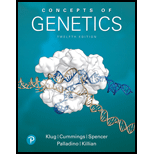
Controlling the overgrowth of invasive aquatic vegetation is a significant problem in the waterways of most U.S. states. Originally, herbicides and dredging were used for control, but in 1963, diploid Asian carp were introduced in Alabama and Arkansas. Unfortunately, through escapes and illegal introductions, the carp spread rapidly and became serious threats to aquatic ecosystems in 45 states. Beginning in 1983, many states began using triploid, sterile grass carp as an alternative, because of their inability to reproduce, their longevity, and their voracious appetite. On the other hand, this genetically modified exotic species, if not used properly, can reduce or eliminate desirable plants and outcompete native fish, causing more damage than good. The use of one exotic species to control other exotic species has had a problematic history across the globe, generating controversy and criticism. Newer methods for genetic modification of organisms to achieve specific outcomes will certainly become more common in the future and raise several interesting questions.
3. What ethical responsibilities accompany the ecological and economic risks and benefits of releasing exotic species into the environment? Who pays the costs if ecosystems and food supplies are damaged?
Want to see the full answer?
Check out a sample textbook solution
Chapter 8 Solutions
Concepts of Genetics (12th Edition)
- Explain in a small summary how: What genetic information can be obtained from a Punnet square? What genetic information cannot be determined from a Punnet square? Why might a Punnet Square be beneficial to understanding genetics/inheritance?arrow_forwardIn a small summary write down:arrow_forwardNot part of a graded assignment, from a past midtermarrow_forward
- Noggin mutation: The mouse, one of the phenotypic consequences of Noggin mutationis mispatterning of the spinal cord, in the posterior region of the mouse embryo, suchthat in the hindlimb region the more ventral fates are lost, and the dorsal Pax3 domain isexpanded. (this experiment is not in the lectures).a. Hypothesis for why: What would be your hypothesis for why the ventral fatesare lost and dorsal fates expanded? Include in your answer the words notochord,BMP, SHH and either (or both of) surface ectoderm or lateral plate mesodermarrow_forwardNot part of a graded assignment, from a past midtermarrow_forwardNot part of a graded assignment, from a past midtermarrow_forward
 Human Heredity: Principles and Issues (MindTap Co...BiologyISBN:9781305251052Author:Michael CummingsPublisher:Cengage Learning
Human Heredity: Principles and Issues (MindTap Co...BiologyISBN:9781305251052Author:Michael CummingsPublisher:Cengage Learning Human Biology (MindTap Course List)BiologyISBN:9781305112100Author:Cecie Starr, Beverly McMillanPublisher:Cengage Learning
Human Biology (MindTap Course List)BiologyISBN:9781305112100Author:Cecie Starr, Beverly McMillanPublisher:Cengage Learning Concepts of BiologyBiologyISBN:9781938168116Author:Samantha Fowler, Rebecca Roush, James WisePublisher:OpenStax College
Concepts of BiologyBiologyISBN:9781938168116Author:Samantha Fowler, Rebecca Roush, James WisePublisher:OpenStax College Biology (MindTap Course List)BiologyISBN:9781337392938Author:Eldra Solomon, Charles Martin, Diana W. Martin, Linda R. BergPublisher:Cengage Learning
Biology (MindTap Course List)BiologyISBN:9781337392938Author:Eldra Solomon, Charles Martin, Diana W. Martin, Linda R. BergPublisher:Cengage Learning
 Biology: The Dynamic Science (MindTap Course List)BiologyISBN:9781305389892Author:Peter J. Russell, Paul E. Hertz, Beverly McMillanPublisher:Cengage Learning
Biology: The Dynamic Science (MindTap Course List)BiologyISBN:9781305389892Author:Peter J. Russell, Paul E. Hertz, Beverly McMillanPublisher:Cengage Learning





